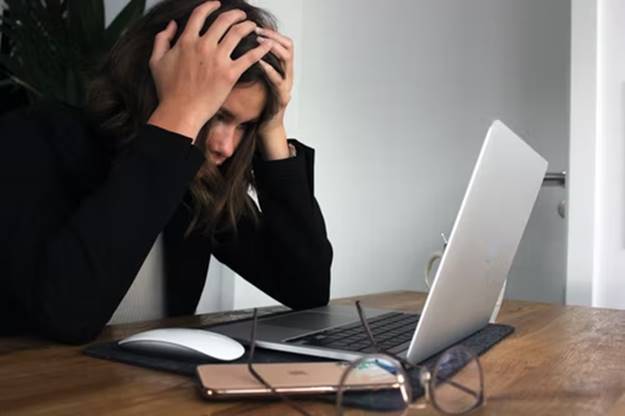If you’re struggling with stress and anxiety, know that you’re not alone. In fact, according to the Anxiety and Depression Association of America, anxiety disorders are the most common form of mental illness in the United States, affecting 40 million adults (that’s 18% of the population!). There are a number of things you can do to help deal with stress and anxiety, both in the moment and in the long term. Here are six things that can definitely help.
Use Supplements
There are a number of different supplements that can be helpful for stress and anxiety. One of the most popular and well-researched is magnesium. Magnesium is a mineral that’s involved in hundreds of biochemical reactions in the body, and it’s been shown to be effective in reducing anxiety and improving sleep.
Other supplements that have been shown to be helpful for stress and anxiety include omega-3 fatty acids, probiotics, and vitamin D. If you’re struggling with stress and anxiety, talk to your doctor about whether taking supplements might be a good option for you. Another supplement that is of benefit is the Integrative Therapeutics Active B-Complex for help with stress and anxiety. It’s a blend of eight different B vitamins, all of which are important for the proper functioning of the nervous system.
Exercise Regularly
When it comes to managing stress and anxiety, one of the best things you can do is to get regular exercise. Exercise releases endorphins, which have mood-boosting effects. It also helps to increase focus and energy levels, while reducing tension and improving sleep quality. There are many different types of exercise that can help to reduce stress and anxiety, you just need to find the ones that work best for you.
Yoga is an effective activity you can start with. It combines physical activity with breathing exercises and relaxation. It can help to improve flexibility, strength, and balance, while also reducing stress and promoting calmness. Other great options include Tai chi, walking, and running.
Eat a Healthy Diet
A healthy diet is important for overall health and well-being and can help to reduce stress and anxiety. There are a variety of foods that can be eaten to help with stress and anxiety, including Omega-3-rich foods: Omega-3 fatty acids are known for their anti-inflammatory properties, and have been shown to be effective in reducing stress and anxiety. Good sources of Omega-3 fatty acids include oily fish such as salmon, mackerel, and sardines; nuts and seeds such as flaxseeds, chia seeds, and pumpkin seeds; and oils such as olive oil and canola oil.
Another important aspect of a healthy diet is to make sure that you’re getting enough vitamins and minerals. Vitamin B6, for example, is known to help the body produce serotonin, a neurotransmitter that plays a role in regulating mood and anxiety. Good sources of vitamin B6 include poultry, fish, bananas, potatoes, and chickpeas. magnesium is another important mineral for stress and anxiety, as it has a calming effect on the nervous system. Good sources of magnesium include dark leafy greens, nuts and seeds, fish, and whole grains.
Avoid Caffeine and Alcohol
There are a lot of things that can contribute to stress and anxiety, but one of the most common is caffeine. Caffeine is a stimulant, so it naturally speeds up the body and mind. This can lead to an increase in heart rate and blood pressure, which can exacerbate anxiety. Alcohol is also a common trigger for stress and anxiety. It’s a depressant, so it slows down the body and mind. This can cause feelings of paranoia and insecurity.
If you’re struggling with stress and anxiety, it’s best to avoid both caffeine and alcohol. Instead of caffeine, try herbal tea or water. Chamomile tea is especially calming and can help to reduce anxiety. If you’re craving alcohol, try a non-alcoholic beverage like sparkling water with fruit juice.
Take Out Time for Yourself
It’s easy to get caught up in the hustle and bustle of everyday life and forget to take a step back and relax. Make sure to schedule in some “you time” every day, even if it’s just for a few minutes. During this time, you can do something calming, such as reading, listening to music, or spending time in nature. Taking breaks from work can also be helpful in reducing stress and anxiety. If you’re feeling overwhelmed, step away from your desk for a few minutes and take a walk or grab a coffee.
It’s important to give yourself a break so you can come back to your work refreshed and with a clear head. And don’t forget to treat yourself! Whether it’s getting a massage, buying yourself a new outfit, or simply taking a relaxing bath, pampering yourself can help reduce stress and anxiety. Make sure to schedule some time for activities that make you happy and help you relax.
Get Enough Sleep
One of the best things you can do for your mental health is to get enough sleep. When you’re exhausted, your stress levels go up and your ability to cope with anxiety goes down. Make sure you’re getting at least 7-8 hours of sleep every night. If you have trouble falling asleep, create a relaxing bedtime routine that you follow every night. This could include reading, taking a bath, or stretching.
There are a lot of things that can contribute to stress and anxiety, but there are also a lot of things you can do to help reduce or manage it. Exercise, healthy eating, taking breaks, and spending time on activities that make you happy can all be helpful in managing stress and anxiety.





